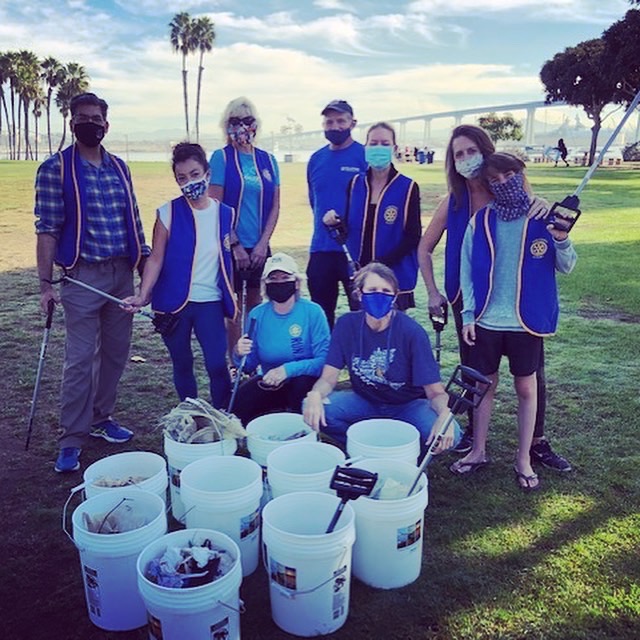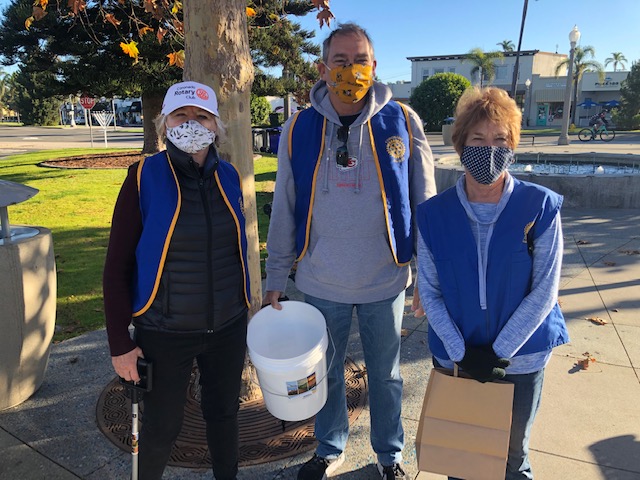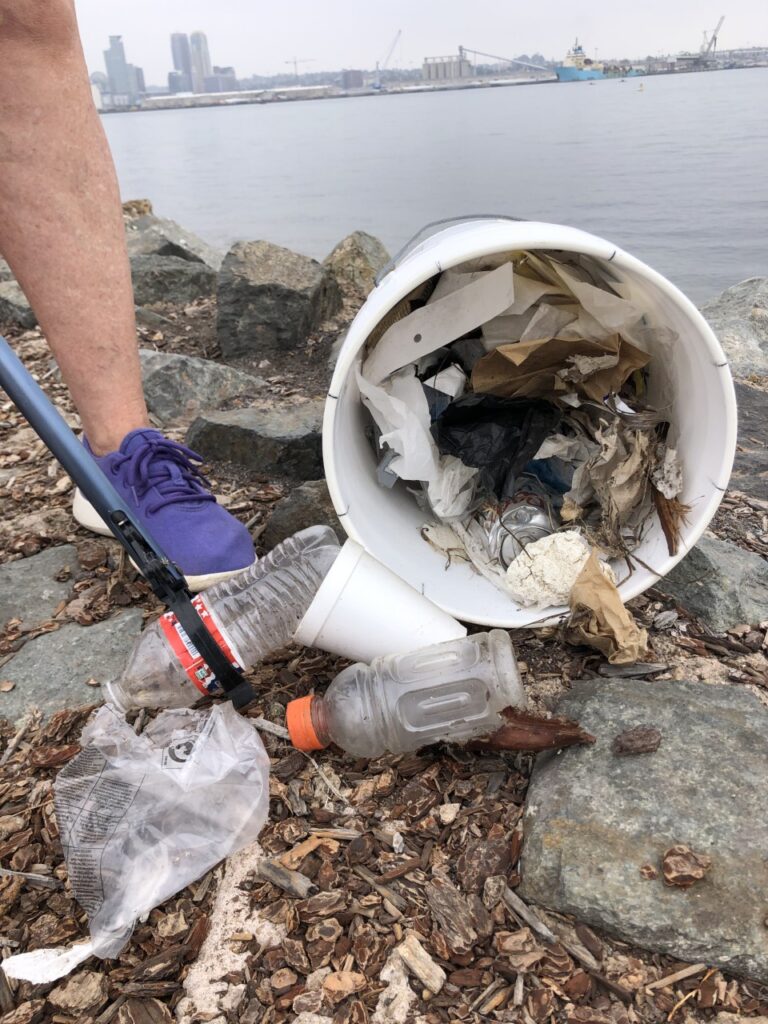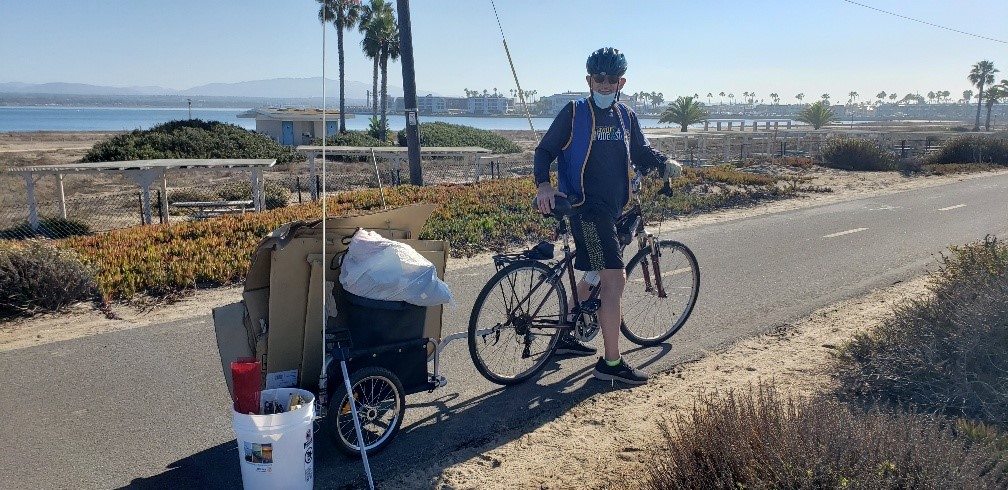
People who walk our beautiful beach early on the weekends have probably observed blue-vested Rotarians picking up trash and putting it into white buckets. Coronado Rotary has been “keeping it clean” on the beach every month since at least 2005 with a crew of as many as 35 people, but it was only this summer that a Committee to Support the Environment was formed. In response to a Rotary International initiative to add an Area of Focus called ‘Supporting the Environment,’ a group of talented and energetic Rotary members with a passion to serve the community and take care of the planet recognized the need to also organize community cleanups.

In the three months since the Committee was formed, they have held 15 Saturday cleanups. Groups get together on the first, second and fourth Saturday of each month to pick up Orange Avenue, Tidelands Park, and the Silver Strand bike path. Small groups of three to 10 Rotarians and family members have spent over 136 hours improving Coronado by picking up over 550 gallons of trash made up of 52% plastic, 28% paper, 8% glass, 10% metal and 2% organic waste. Trash that is recyclable is recycled.
What items are being picked up? Cans and bottles, sports equipment, shoes, a rug, a shower curtain, a broken windshield, holiday lights, synthetic flower petals (they do not biodegrade!) and well over 100 facemasks. The most frequently found trash is cigarette butts and single-use food items (straws, plastic utensils, plates, bags, cups, etc.) – mostly plastic. Since Coronado is surrounded by water, striving to make our environment litter-free will help to eliminate trash that is easily blown into the ocean or bay.

Take-out meals are more common with the restrictions on restaurant dining, and we certainly want to continue to support our local restaurants and businesses responsibly by disposing of trash in a sustainable way. Rotary is focused on reducing waste, particularly plastic waste, by promoting the use of reusable utensils and straws, and paper or recyclable plates and cups with take-out meals.
Are you surprised by the amount of trash the committee is finding? We can all help by reducing our waste where possible, and making sure that the waste we do create ends up in recycling or trash cans. Also, when you see trash, pick it up and put it in trash or recycling. By working together, we can keep our wildlife healthy and our bay and ocean clean.





